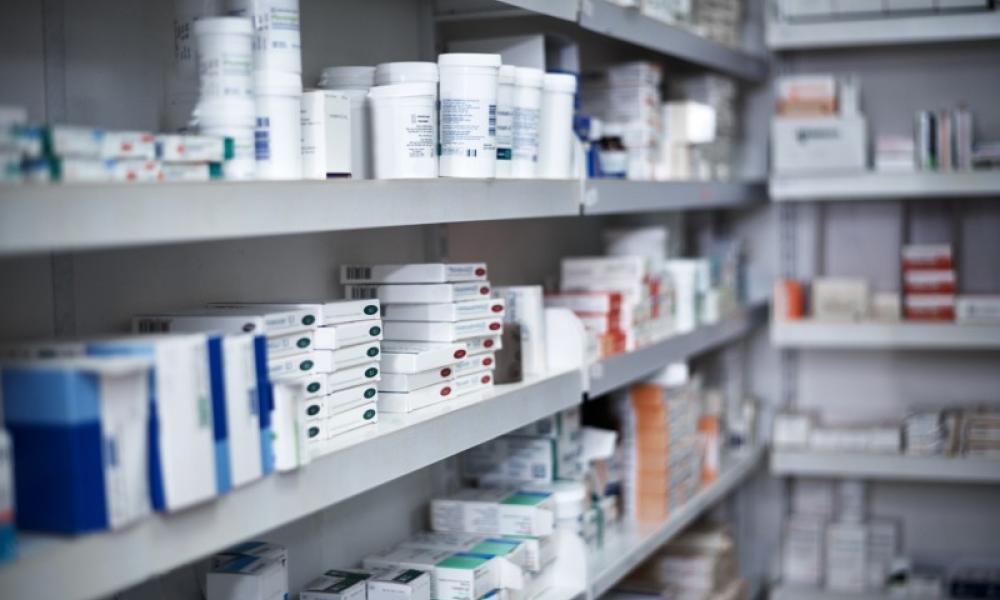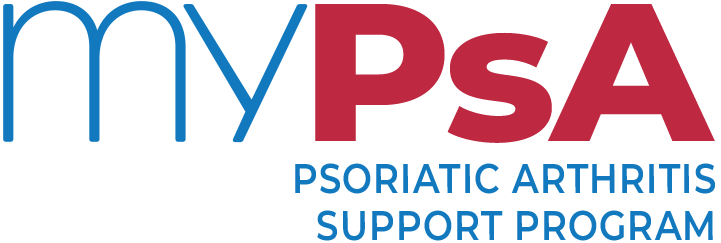
This information sheet was written by the Australian Rheumatology Association to help you understand guselkumab. It includes important information about:
- how you should take your medicine
- the possible side (harmful) effects
- what tests you will have to monitor your condition
- other precautions you should take while you are taking guselkumab.
Please read it carefully and discuss it with your doctor:
- You must see your rheumatologist regularly to make sure the treatment is working and check for possible side effects.
- You should have regular blood tests as suggested by your rheumatologist
- It is important to tell your rheumatologist if you have a new serious illness such as a serious infection, cancer, heart failure etc.
- If you are worried about any side effects, you should contact your rheumatologist as soon as possible.
- If you stop guselkumab for any reason, you must contact your rheumatologist. Failure to do so may mean that your treatment may no longer be funded.
- If you plan to become pregnant, you must discuss the timing with your rheumatologist.
What is guselkumab?
Guselkumab belongs to a class of medicines called biological disease modifying antirheumatic drugs (biological DMARDs or bDMARDs). Specifically, it is a monoclonal antibody which works by neutralising the activity of a protein called IL-23. IL-23 is present in increased levels in people with psoriatic arthritis and psoriasis. IL-23 can cause pain and swelling in the joints. Guselkumab is called an IL-23 inhibitor.
Guselkumab is used to treat adults with active psoriatic arthritis, an inflammatory disease of the joints in which psoriasis usually occurs with arthritis. It is also used to treat adults with moderate to severe plaque psoriasis, an inflammatory condition affecting the skin and nails.
What benefit can you expect from your treatment?
Guselkumab is a new medicine used for patients who have severe active psoriatic arthritis. It may not work straight away. It may take a number of weeks for you to notice some relief of joint swelling, pain and stiffness.
Stopping guselkumab?
If you stop or delay your guselkumab treatment, your disease may get worse again. Keep on your treatment, unless told by your rheumatologist to stop or unless serious side effects occur (see Side effects).
If you stop guselkumab for any reason, you must contact your rheumatologist.
Failure to do so may mean that your treatment may no longer be funded.
How will you be checked while on guselkumab?
- Medicines like guselkumab are very expensive and highly funded by Medicare. Certain conditions must be met to receive it.
- Guselkumab will only be given if your disease is active and if standard treatments have not worked.
- Blood tests are needed during your treatment to decide if the treatment is working.
- How often you have blood tests will depend on what other medicines you are taking and what other illnesses you might have. Your rheumatologist will advise on this.
How is guselkumab administered?
Guselkumab is injected under the skin of the abdomen or thigh. It is best to avoid (if possible) any areas of skin involved with psoriasis.
It can be injected by your doctor, nurse, carer or by you. If injecting yourself, be sure to follow the detailed instructions carefully to ensure the best response. It is particularly important to change where you inject each time.
Before use, remove the carton from the refrigerator and keep the pre-filled syringe or pre-filled pen inside the carton and allow to reach room temperature by waiting for 30 minutes.
What is the dosage?
The usual dose for adults with psoriatic arthritis is 100mg (1 pre-filled syringe or pre-filled pen) as the first dose. After the first dose, you will have the next 100mg dose 4 weeks later, and then 100mg every 8 weeks.
Can other medicines be taken with guselkumab?
Guselkumab may be used with other arthritis medicines including:
- other DMARDs such as methotrexate
- steroid medicines such as prednisolone or cortisone injections into the joint
- anti-inflammatory medicines (NSAIDs) such as naproxen (Naprosyn) or ibuprofen (Brufen, Nurofen)
- simple pain medicines such as paracetamol.
Guselkumab cannot be used with other bDMARDs.
How long is the treatment continued?
Your doctor will tell you how long to continue treatment with guselkumab.
Are there any side effects?
You might experience side effects with your treatment. Contact your rheumatologist if you have any concerns about possible side effects. Many side effects disappear when guselkumab treatment is stopped.
Most common possible side effects
- The most common side effects with guselkumab are upper respiratory tract infections such as sinus infection, sore throat or headache. These are usually mild. Tell your doctor if you are concerned, or if the side effects persist for a long time.
Less common or rare possible side effects
Less common side effects include injection site reactions (redness, pain and itching), nausea or diarrhoea.
There are some rare but potentially serious side effects with guselkumab
- Serious allergic reaction: Signs of a serious allergic reaction may include a skin rash, a swollen face, lips, mouth or throat, or wheezing, dizziness, trouble swallowing or breathing.
- Tell your doctor or go to the hospital immediately if you have an allergic reaction as you need urgent medical attention.
- Serious infections: guselkumab may lower your ability to fight infections. Some infections could become serious and you may need to be admitted to hospital. If you have an infection before you start treatment with guselkumab, you must tell your doctor. If you get an infection while on guselkumab, tell your doctor straight away.
- Cancer: some drugs like guselkumab that decrease the activity of the immune system may increase the risk of cancer. Tell your doctor if you have ever had any type of cancer.
Other side effects not listed in this leaflet may also occur. Tell your doctor if you notice any other side effects that you think might be caused by guselkumab.
What precautions are necessary?
Infections. Serious infections such as tuberculosis (TB) are seen rarely, and screening for TB is needed before treatment begins.
Use with other medicines. Guselkumab may interact with other medicines. You should tell all your doctors about all medicines you are taking or plan to take. This includes over the counter or herbal/naturopathic medicines.
Vaccines:
- If you are taking guselkumab you should not be immunised with ‘live’ vaccines such as: MMR (measles, mumps and rubella), Varicella vaccines (Chicken pox/Shingles), OPV (oral polio virus), BCG (Bacillus Calmette Guerin), Japanese Encephalitis or Yellow Fever. Talk with your rheumatologist before receiving any vaccines.
- Pneumococcal vaccines and the yearly seasonal flu vaccinations are encouraged.
More information is available on Vaccinations in Rhematology and COVID-19 vaccination.
Surgery
- If you need surgery for any reason, guselkumab may need to be stopped before surgery. It can usually start again after the operation at a time decided by your surgeon and rheumatologist.
Use with alcohol
- You may drink alcohol while taking guselkumab. If you are also taking methotrexate you should be cautious about how much alcohol you drink.
Use in pregnancy and when breastfeeding
- The effects of guselkumab during pregnancy and breastfeeding have not been well studied, so it is not clear if it causes birth defects and/or can be used while breastfeeding.
- If you are pregnant, planning to get pregnant or breastfeeding you should discuss this with your doctor before beginning this medication.
More detailed information is available here.
How to store guskelmumab
- Store guselkumab in a refrigerator between 2oC and 8oC. Do not freeze. Keep the product in the original carton to protect from light until the time of use. Do not shake the product.
- Keep all medicines out of reach of children.
Disposal
- After injecting guselkumab, the used syringe or pen should be placed into a sharps container. Dispose of your sharps container according to your state or local regulations. If you are unsure of how to dispose of your sharps container ask your pharmacist.
- Do not put the used syringe or pen into your normal household or recycling waste.
- If your doctor tells you to stop using guselkumab, or the expiry date has passed, ask your pharmacist what to do with the leftover medicine.
This Information Sheet has been prepared using materials obtained from various sources which have been reviewed by the Australian Rheumatology Association (ARA). It contains general information only and does not contain a complete or definitive statement of all possible uses, actions, precautions, side effects or interactions of the medicines referenced. This information is not intended as medical advice for individual conditions nor for making an individual assessment of the risks and benefits of taking a particular medicine. Decisions regarding the assessment and treatment of patients are the sole responsibility of the treating medical professional, exercising their own clinical judgment and taking into account all of the circumstances and the medical history of the individual patient. ARA has used all reasonable endeavours to ensure the information on which this Information Sheet is based is accurate and up to date. However, the ARA accepts no responsibility or liability for the accuracy, currency, reliability and/or completeness of the information contained in this Information Sheet. To the maximum extent permitted by law, the ARA expressly disclaims any liability for any injury, loss, harm or damage arising from or in connection with use of and reliance on the information contained in this Information Sheet. This information sheet is copyright and may be reproduced in its entirety but may not be altered without prior written permission from the ARA.
Last reviewed May 2024.










